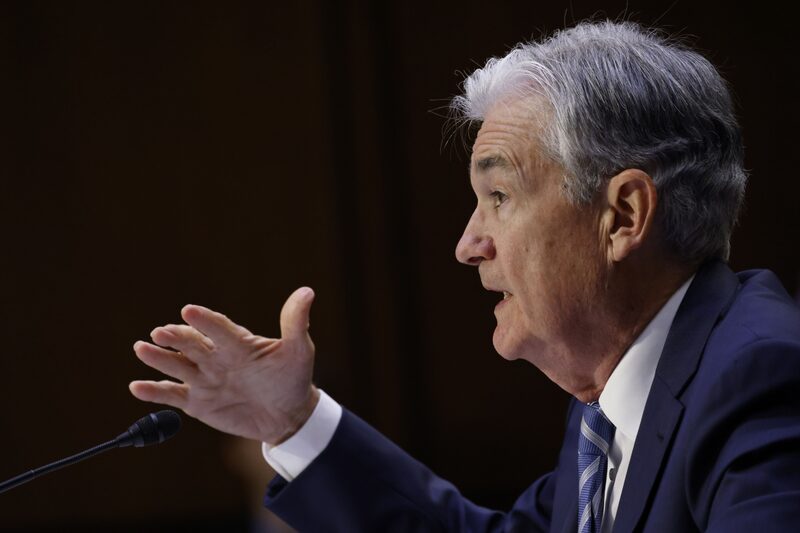A roundup of Wednesday’s stock market results from across the region
📉 A Bad Day:
Latin American stock markets closed with losses on a day that was marked by the fall in the prices of some commodities and the possibility of a recession in the United States.
None of the region’s main markets closed with gains. The S&P BVL/Peru (SPBLPGPT) was the one that fell the most during the day, accumulating a drop of more than 2%.
The performance of the materials, finance and consumer staples sectors weighed on the decline of the Peruvian index.
Shares of mining company Southern Copper (SCCO) fell by more than 4% and which were among the sharpest declines of the day.
Losses also occurred on Brazil’s Ibovespa (IBOV), dragged down by the fall of companies linked to raw materials, on a day of falling oil and iron ore prices.
The same trend was seen in the Mexican stock market where the S&P BMV/IPC (MEXBOL) fell due to the performance of the raw materials, finance and consumer staples sectors.
🗽 On Wall Street:
US stocks slumped after Federal Reserve Chair Jerome Powell reiterated his commitment to curb inflation and acknowledged the risk of recession, even as some traders now expect the central bank to closely monitor the impact of its rate hikes on the economy.
The S&P 500 snapped a two-day rally and the tech-heavy Nasdaq 100 (CCMPDL) also fell. Treasury yields declined with the 10-year yield hovering around 3.15%. The dollar fell after earlier gains while other safe haven assets such as gold climbed.
Testifying in the Senate Wednesday, Powell made no reference to the size of future hikes, but tacitly admitted that the Fed has failed to get its job done and said it would be difficult to engineer a soft landing. Stocks wavered during the session as some investors found reassurance in Powell’s comments as a signal that the Fed will factor in economic fundamentals and the probability of a recession as it moves to curtail inflation.
“He has acknowledged that rates will continue to increase, but the FOMC committee is cognizant of watching incoming data suggesting the Fed will not be exclusively on autopilot with tightening,” said Joe Gilbert, portfolio manager for Integrity Asset Management.
Powell’s tone was perceived as “less hawkish than feared” because there was no mention of the “unconditional” commitment to bring down inflation at the cost of higher unemployment, Evercore ISI’s Krishna Guha and Peter Williams wrote in a note.
“The Fed monitors how the media and others respond to its communications carefully, so we doubt this omission was an accident,” they write.
The odds of the Fed’s rate hiking cycle extending beyond the November policy meeting, which is the week before US mid-term elections, have diminished sharply as traders continue to price the prospects of a hard-landing and swifter policy reversal next year.
Others still expect more uncertainty on the horizon as investors parse Powell’s testimony and comments from former New York Fed President Bill Dudley who said, in a Bloomberg Opinion column Wednesday, that a recession is “inevitable” within the next 12 to 18 months.
“No one’s going to want to come in and want to buy a market, put anything significant into the market while you’re getting this all-over-the-place volatility,” Shawn Cruz, head trading strategist at TD Ameritrade, said in an interview at Bloomberg’s New York headquarters.
The market continues to be skeptical about the outlook for risk assets. Deutsche Bank AG’s CEO Christian Sewing joined a growing chorus of executives and policy makers who warn that the global economy may be headed for a recession as central banks step up efforts to curb inflation.
Bitcoin briefly dropped below its $20,000 key level as investors remain concerned about a global recession. Powell said, on Wednesday, that there are no significant macro effects so far from the crypto decline. He also said that Congress should clarify who has the authority to regulate it.
🔑 The Day’s Key Events:
Oil prices fell amid fears that a recession in the world’s leading economy could happen, despite the optimism that President Joe Biden has tried to show.
West Texas Intermediate and Brent benchmarks fell more than 3%, amid a tight market struggling to increase crude supply as demand could be hurt by slowing economies.
Analysts at Citigroup (C) said that while they expect further declines in oil toward the end of the year, a volatile downtrend is expected, Bloomberg reported.
During the day, Biden asked Congress to suspend the federal gasoline tax to alleviate soaring prices that have hit record highs in the United States.
The national average price of regular unleaded gasoline has climbed 38% since Russia invaded Ukraine on February 24, according to AAA motor club data compiled by Bloomberg.
🍝 For the Dinner Table Debate:
The fight against corruption is not a priority for Latin American governments, amid the changes brought by the Covid-19 pandemic and economic problems such as high inflation, warned the Council Of The Americas in a report that evaluated 15 countries in the region.
Uruguay returned to the top of the Latin American ranking of Capacity to Fight Corruption, despite the fact that it reduced its overall score this year from 7.80 to 7.42.
The drop, the report explained, is due to variables measuring the level of international cooperation, the effectiveness of anti-corruption agencies, and the country’s capacity to combat white-collar crime.
In the ranking, Costa Rica is second, with a score of 7.11, while in third place is Chile, with 6.88.
The report also highlights that, within the bottom group, the countries showed some signs of improvement. Venezuela, although it remained in last place and is far behind the rest of the countries in the region, showed progress in the category of digital communications and social networks.
-- Carlos Rodríguez Salcedo, a content producer for Bloomberg Línea, and Peyton Forte and Vildana Hajric, of Bloomberg News, contributed to this report


